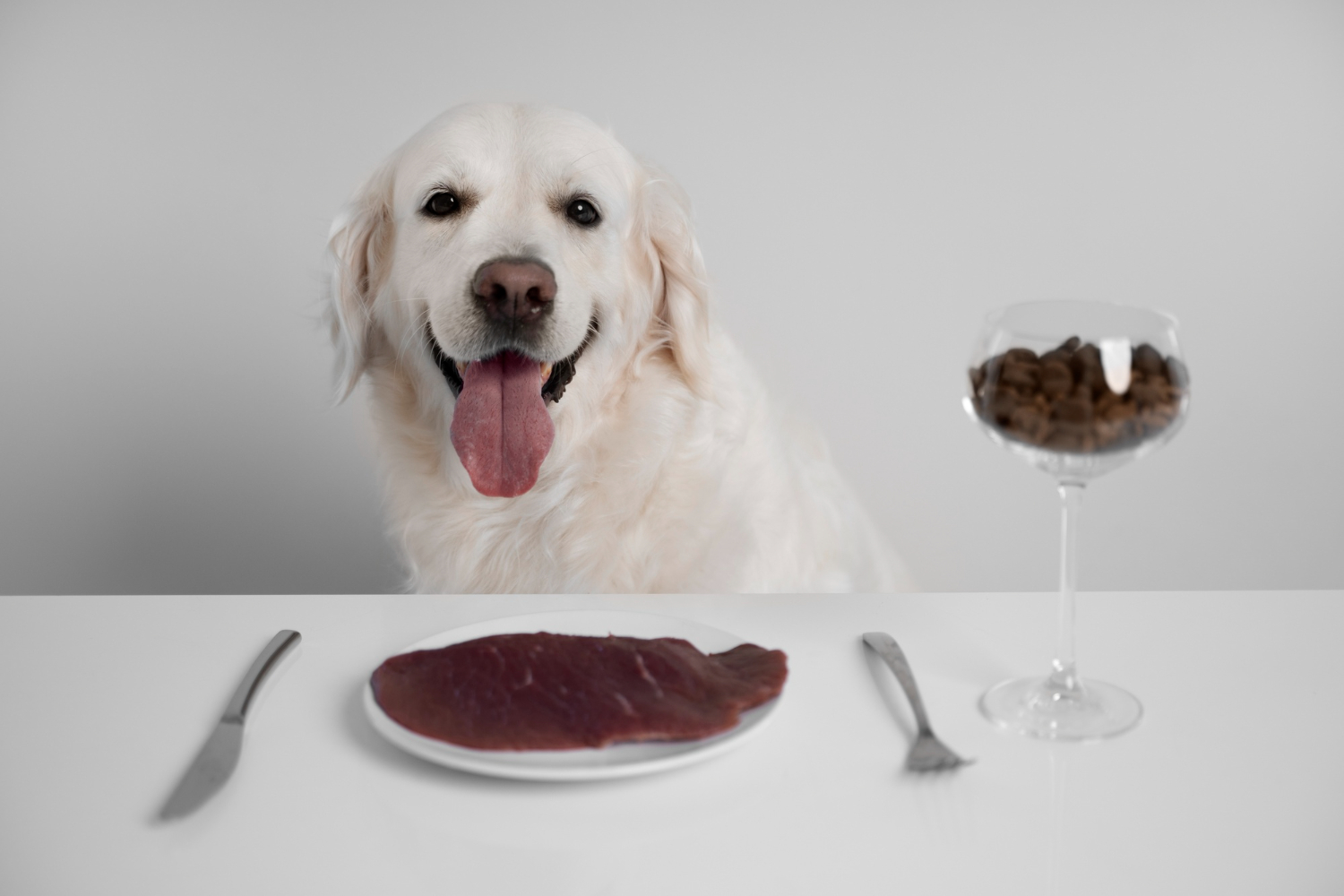Sharing our lives with dogs often involves sharing more than just our homes; it extends to the dinner table as well. While it’s crucial to be aware of foods that can be harmful to our canine companions, there are also numerous human foods that are safe and even beneficial for dogs. In this comprehensive guide, we’ll explore a variety of human foods that can be incorporated into your dog’s diet, providing both nutritional value and a tasty treat.
1. Lean Proteins
Chicken:
Benefits: A lean source of protein, chicken is rich in essential amino acids and can be served boiled or grilled without added spices.
Cautions: Remove bones and skin before feeding to prevent choking and avoid seasoning with garlic or onion.
Turkey:
Benefits: Like chicken, turkey is a lean protein source that can be offered in moderation. Ensure it’s cooked thoroughly without added fats or spices.
Cautions: Remove bones and skin, and avoid seasoned or processed turkey products.
Fish:
Benefits: Fatty fish like salmon or mackerel are excellent sources of omega-3 fatty acids, promoting a healthy coat and supporting overall well-being.
Cautions: Ensure the fish is cooked, boneless, and free from added spices or seasonings. Avoid high-mercury fish.
2. Fruits
Apples:
Benefits: Apples are a good source of vitamins and fiber. Remove seeds and core before serving, and offer in bite-sized pieces.
Cautions: Feed in moderation, as excessive consumption may lead to digestive upset.
Blueberries:
Benefits: Packed with antioxidants, blueberries are a nutritious and tasty treat that can be served fresh or frozen.
Cautions: Serve in moderation due to natural sugars.
Bananas:
Benefits: Bananas provide potassium, vitamins, and fiber. Offer in small, bite-sized pieces.
Cautions: Moderation is key, as bananas are high in natural sugars.
3. Vegetables
Carrots:
Benefits: Crunchy and low in calories, carrots are an excellent source of beta-carotene and can be served raw or lightly steamed.
Cautions: Cut into small, manageable pieces to prevent choking.
Sweet Potatoes:
Benefits: Rich in fiber, vitamins, and minerals, sweet potatoes can be boiled, mashed, or baked without added seasonings.
Cautions: Serve in moderation due to their carbohydrate content.
Broccoli:
Benefits: Broccoli is a low-calorie vegetable rich in vitamins and antioxidants. Serve it cooked to enhance digestibility.
Cautions: Offer in moderation to avoid potential gastrointestinal issues.
4. Grains
Quinoa:
Benefits: A complete protein source, quinoa is gluten-free and provides essential amino acids. Cook and serve plain.
Cautions: Introduce gradually to monitor for any sensitivities.
Oats:
Benefits: Oats are a good source of fiber and can be served cooked or raw. They are gentle on the digestive system.
Cautions: Avoid adding sweeteners or toppings like raisins, which can be harmful to dogs.
Brown Rice:
Benefits: A easily digestible grain, brown rice provides complex carbohydrates and is a good energy source.
Cautions: Serve plain, without added sauces or seasonings.
5. Dairy
Plain Yogurt:
Benefits: Yogurt is a probiotic-rich treat that supports digestive health. Choose plain, unsweetened varieties.
Cautions: Ensure your dog tolerates lactose well and start with small amounts.
Cheese:
Benefits: A good source of protein and calcium, cheese can be offered in small amounts. Opt for low-fat options.
Cautions: Monitor portion sizes, as cheese is calorie-dense.
6. Meats and Organs
Liver:
Benefits: Liver is a nutrient-dense organ meat rich in vitamins and minerals. Serve in moderation to prevent vitamin A toxicity.
Cautions: Limit intake due to potential vitamin A overdose.
Lean Beef:
Benefits: Lean beef provides protein and essential nutrients. Cook thoroughly without added seasonings or spices.
Cautions: Remove excess fat and ensure it’s cooked to avoid bacterial contamination.
Eggs:
Benefits: Eggs are an excellent source of protein and healthy fats. Serve cooked, avoiding any seasonings.
Cautions: Ensure eggs are fully cooked to prevent salmonella risk.
Tips for Safely Incorporating Human Foods into Your Dog’s Diet
- Moderation is Key:
While many human foods are safe for dogs, moderation is crucial to prevent overconsumption of certain nutrients or potential digestive upset. - Introduce Gradually:
When introducing new foods, do so gradually to monitor for any adverse reactions or allergies. - Avoid Harmful Ingredients:
Steer clear of foods containing ingredients like onions, garlic, chocolate, grapes, raisins, and xylitol, as they can be toxic to dogs. - Consult with Your Vet:
Before making significant changes to your dog’s diet, consult with your veterinarian, especially if your pet has specific health conditions or dietary restrictions. - Watch for Allergies:
Monitor your dog for any signs of allergies or sensitivities, such as itching, vomiting, or diarrhea, and adjust their diet accordingly. - Tailor to Individual Needs:
Dogs have varying nutritional requirements based on factors like breed, size, age, and health status. Tailor their diet to meet their individual needs.
Feeding your dog human foods can be a rewarding experience, enhancing their diet with nutritious and flavorful additions. By incorporating a variety of safe foods, you not only provide essential nutrients but also contribute to the joy and excitement of mealtime for your furry friend.
Remember, while these foods are generally safe, individual dogs may react differently, and it’s important to monitor their reactions to new additions to their diet. Additionally, a balanced and complete commercial dog food remains a staple in meeting your pet’s nutritional needs.
As with any aspect of pet care, responsible feeding involves understanding your dog’s unique requirements and consulting with a veterinarian to ensure their overall health and well-being. With the right balance and attention to your dog’s needs, sharing nutritious human foods can be a delightful way to strengthen the bond between you and your four-legged companion.
Image by Freepik

